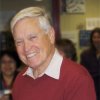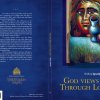Catherine was born in New York City, grew up in London and is the eldest daughter of Princess Elizabeth and her former husband Howard Oxenberg who is Jewish.
Princess Elizabeth is the only daughter of Prince Paul who served as regent for King Peter of Yugoslavia.
Catherine started her acting career playing Diana, Princess of Wales. Her career took off in 1984. when she joined the cast od Dynasty in the role of Amanda Carrington.She is the only descent of a royal house to host a "Saturday Night Live."
Catherine on her maternal side of the family is related to the Romanovs (Russian), Greek, Danish royal families. And most famously thru marriage to Queen Elizabeth II of England.





